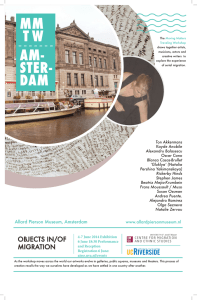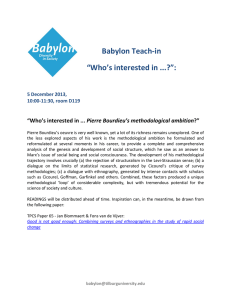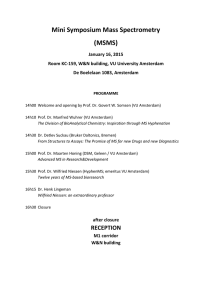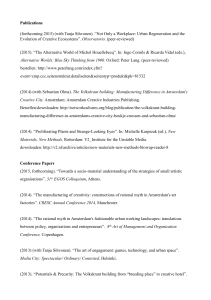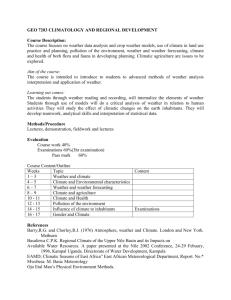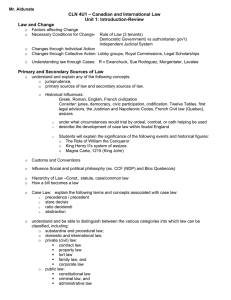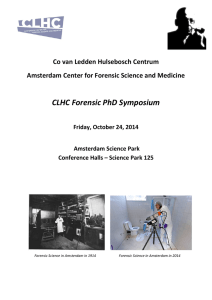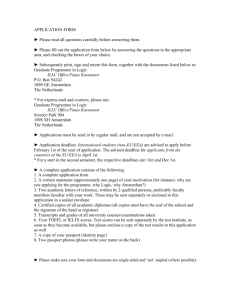van Benthem Abstract
advertisement
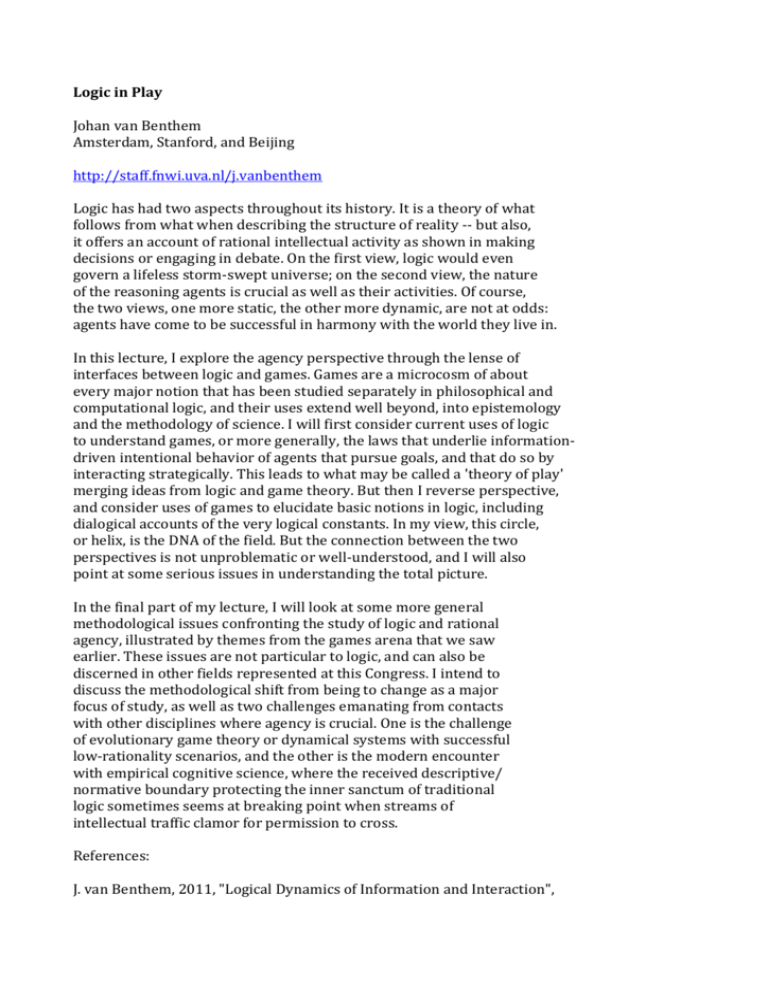
Logic in Play Johan van Benthem Amsterdam, Stanford, and Beijing http://staff.fnwi.uva.nl/j.vanbenthem Logic has had two aspects throughout its history. It is a theory of what follows from what when describing the structure of reality -- but also, it offers an account of rational intellectual activity as shown in making decisions or engaging in debate. On the first view, logic would even govern a lifeless storm-swept universe; on the second view, the nature of the reasoning agents is crucial as well as their activities. Of course, the two views, one more static, the other more dynamic, are not at odds: agents have come to be successful in harmony with the world they live in. In this lecture, I explore the agency perspective through the lense of interfaces between logic and games. Games are a microcosm of about every major notion that has been studied separately in philosophical and computational logic, and their uses extend well beyond, into epistemology and the methodology of science. I will first consider current uses of logic to understand games, or more generally, the laws that underlie informationdriven intentional behavior of agents that pursue goals, and that do so by interacting strategically. This leads to what may be called a 'theory of play' merging ideas from logic and game theory. But then I reverse perspective, and consider uses of games to elucidate basic notions in logic, including dialogical accounts of the very logical constants. In my view, this circle, or helix, is the DNA of the field. But the connection between the two perspectives is not unproblematic or well-understood, and I will also point at some serious issues in understanding the total picture. In the final part of my lecture, I will look at some more general methodological issues confronting the study of logic and rational agency, illustrated by themes from the games arena that we saw earlier. These issues are not particular to logic, and can also be discerned in other fields represented at this Congress. I intend to discuss the methodological shift from being to change as a major focus of study, as well as two challenges emanating from contacts with other disciplines where agency is crucial. One is the challenge of evolutionary game theory or dynamical systems with successful low-rationality scenarios, and the other is the modern encounter with empirical cognitive science, where the received descriptive/ normative boundary protecting the inner sanctum of traditional logic sometimes seems at breaking point when streams of intellectual traffic clamor for permission to cross. References: J. van Benthem, 2011, "Logical Dynamics of Information and Interaction", Cambridge University Press; 2014, "Logic in Games", The MIT Press, 2015, 'Fanning the Flames of Reason', ILLC, University of Amsterdam.
